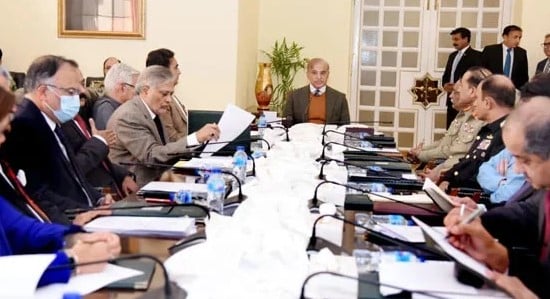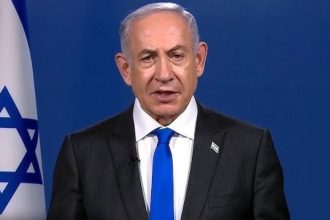The second session of the National Security Committee (NSC), a meeting chaired by Prime Minister Shehbaz Sharif, concluded in Islamabad on Monday.
Critical security and economic issues were on the agenda at the NSC meeting. In addition, senior civilian and military leaders attended the moot, which was the primary platform for making foreign policy and national security decisions.
In the first round of NSC, held last week, the committee resolved to exterminate terrorism with full force and without discrimination before deferring the debate until today so that choices could be finalized in light of ideas.
Since economic issues are uncommon for the NSC, it was anticipated that decisions would be made not only to combat terrorism but also to stabilize the nation’s ailing economy.
After a long war on terrorism that began in 2001, Pakistan’s civic and military authorities declared peace. However, the state won’t allow terrorists to return because thousands of Pakistanis sacrificed for peace, the statement said.
In recent months, terrorist groups such as Tehreek-i-Taliban Pakistan (TTP), Islamic State, and Gul Bahadur Group have attacked with relative impunity.
Balochistan’s rebels have upped violence and joined the TTP.
The episode at the Khyber Pakhtunkhwa police Counter-Terrorism Department interrogation center in Bannu and the suicide bombing attempt in Islamabad rang alarm bells in the corridors of power. They caused other nations to worry for their people.






